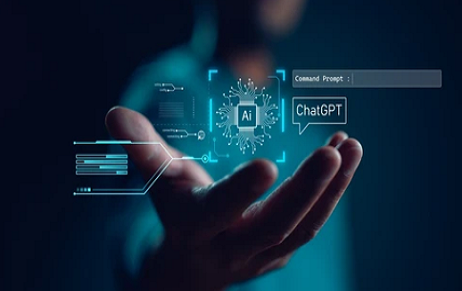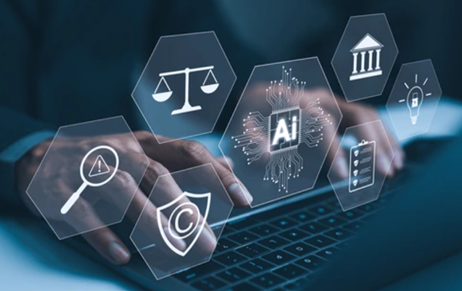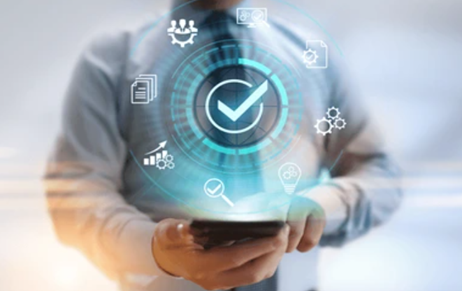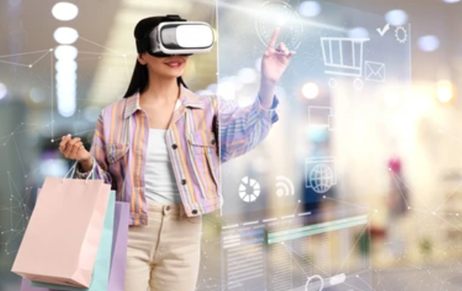Artificial intelligence has a wide range of effects, including on intellectual property law. At best…
Exploring The Nexus Between Artificial Intelligence And Copyright Act, 1956
Introduction
Our world has seen an incredible change in the creation of content because of unleashing artificial intelligence’s (AI) boundless potential. Questions about authorship, Liability, and ownership have surfaced from the depths of legal complexities as a result of the widespread use of AI-generated works. The dynamic interaction between people and artificial intelligence systems has prompted a legal discussion in India, where the Copyright Act of 1957 is the law of the land. The questions like, who is the true author of AI-generated masterpieces? And what is the liability of the algorithm creators or author? Today, we start a fascinating investigation of the legal quagmire surrounding AI-generated works in India, looking for solutions amidst the flurry of legal frameworks and technical advancement.
Authorship Of Ai-Generated Work
Copyright in India is governed by the Copyright Act of 1957, which grants protection to the author or creator of a work.The Act defines authorship based on the type of work, including literary works, dramatic works, musical works, artistic works, cinematographic films, and sound recordings[1]. If we consider a few of them, the Copyright Act states that in the case of a literary or dramatic work, the author is the person who creates the work[2]. For literary works, which is computer generated the Copyright Act identifies the person who caused the work by computer, as author[3]. However, when it comes to AI-generated works, the Copyright Act doesn’t specify anything, however, if we try to interpret the existing provision i.e., Section 2(d)(vi) of the Copyright Act, 1957 defines “author” as ‘the person who causes the work to be created’. This provision can be broadly interpreted to include individuals who provide the necessary data or instructions to an AI system, resulting in the creation of computer-generated work. The Copyright Act also covers copyright ownership, stating that the author should be the “first owner” of the copyright in a work[4]. According to the aforementioned sections, the first owner of the copyright for an AI-generated work shall be deemed to be the person who generates the work by giving input or instructions. Therefore, these sections acknowledge the contribution of people who provide data to AI tools or give them instructions, recognizing them as the creators of the final material.
[Image Sources: Shutterstock]

The evolving landscape of AI-generated content may necessitate future considerations and potential amendments to copyright laws in India. First, as AI-generated material becomes more sophisticated, it becomes more difficult to discern between work produced by humans and machines, posing issues with authorship and copyright ownership. Secondly, the widespread commercial use of AI-generated content creates pressure to update copyright laws to protect the rights of copyright holders.
Liability Of Algorithm Creators Or Author
The liability of algorithm creators or authors in the context of AI-generated content is an important consideration within the current legal framework. In accordance with the interpretation of Section 2(d)(vi) of the Copyright Act of 1957, it acknowledges the contribution of people who provide data to AI tools or give them instructions, recognizing them as the author of the final material, including content produced by AI, therefore, they retain the exclusive right to it. This implies that any difficulties that may arise because of the use or dissemination of the developed information are the responsibility of the person or organisation that causes the work through the AI system[8]. They must take steps to prevent any breach or infringement of another person’s rights. The rights to an AI work, along with the ownership and obligations that come with it, may, however, occasionally be transferred or assigned by the author to another person or organization[9].This implies that any legal problems or duties resulting from the usage or dissemination of AI-generated work may be the responsibility of the new owner, who may be an algorithm creator or another author.
To determine the author’s liability for AI-generated works in India, legal legislation, such as the Copyright Act, and fundamental legal principles may be applied. It is feasible to assess an AI-generated work’s author’s liability in India by analysing pertinent law:
Copyright Act, 1957
In India, the Copyright Act, 1957 is extremely important in identifying the legal liability of the author, which may also include the creator of the algorithm and the author of the AI-generated work in situations of copyright infringement. This section includes a list of acts that are deemed copyright violations such as unauthorized replication, distribution, or modification of a work protected by copyright.[10]This means that if the author of AI-generated work copies, reproduces, or distributes, through which some infringement of copyright occurs, they may be liable for copyright infringement. Similar is the case of the Algorithm Creator, which means that if algorithm creators’ copy, reproduce, distribute, or through their algorithms and the result of which leads to some infringement of copyright, they may be liable for copyright infringement. However, whether it is author or algorithm creator is liable will always depend upon the particular facts and circumstances of the case which will be decided by the appropriate authority.
By asserting the liability under Section 51, legal action against the author as well as the algorithm creator who infringes upon copyright can be taken. The person whose copyright has been infringed has the right to seek remedies, such as damages, injunctions, or other relief, to protect their intellectual property and hold the infringing parties accountable[11].
CONCLUSION
The emergence of AI technologies and their impact on content creation have introduced novel challenges and considerations in the realm of copyright and liability. Although India’s current Copyright Act of 1957 does not expressly include AI-generated works, it can be reasonably construed to recognize the input and instructions provided by individuals as a substantive contribution to the genesis of such works. However, it is paramount to emphasize that the primary authorship and ownership of academic works, as well as the liability for copyright infringement, ultimately rests with human creators.
Additionally, the use of AI-generated content for commercial purposes highlights the urgent need for copyright laws to be updated and reformed in order to safeguard the rights of copyright holders. Legislators and stakeholders must carefully consider these complex problems relating to copyright and liability as the landscape of AI technology continues to change. It is crucial to strike a careful balance between preserving intellectual property rights, and data privacy while also promoting innovation. India can effectively adapt to the breakthroughs in artificial intelligence (AI) and provide an impartial and fair environment for creators, users, and society at large through the intentional implementation of well-considered legislation and the construction of strong legislative frameworks.Top of Form.
Author: Yagya Agarwal, in case of any queries please contact/write back to us via email to chhavi@khuranaandkhurana.com or at IIPRD.
[1]Copyright Act 1957, s 2 and 13.
[2]Copyright Act 1957, s 2(d); Mr.Thiagarajan Kumararaja V M/S Capital Film Works (2017) SCC OnLine Mad 37588.
[3]Copyright Act 1957, s 2(d)(vi).
[4]Copyright Act 1957, s 17; Eastern India Motion Pictures V Indian Performing Right Society (1977) 2 Supreme Court Cases 820.
[5] Elsevier, ‘Cambridge University Press Allow Use of ChatGPT for Academic Writing’Live Mint, 19 March 2023, <www.livemint.com/news/world/elsevier-cambridge-university-press-allow-use-of-chatgpt-for-academic-writing-11679201026288.html> accessed at 3 July 2023.
[6]Camlin Pvt. Ltd. V National Pencil Industries(1986) SCC OnLine Del 221;Rupendra Kashyap V Jiwan Publishing House (P) Ltd (1996) SCC OnLine Del 466;Ramesh Sippy V Shaan Ranjeet Uttamsingh And(2013) SCC OnLine Bom 523.
[7]U.S. Copyright Office,Copyright Registration Guidance: Works Containing Material Generated by Artificial Intelligence, (2023) 37 CFR Part 202, Vol. 88, 51.
[8]Akuate Internet Services Pvt. V Star India Pvt. Ltd. & Anr.(2013) SCC OnLine Del 3344.
[9]Mr. Diljeet Titus, Advocate V Mr. Alfred A. Adebare and Ors.(2006) SCC OnLine Del 551.
[10]Copyright Act 1957, s 51.
[11]Copyright Act 1957, s 55; Super Cassetes Industries Ltd. vs Myspace Inc. & Another (2011) SCC OnLine Del 3131.



